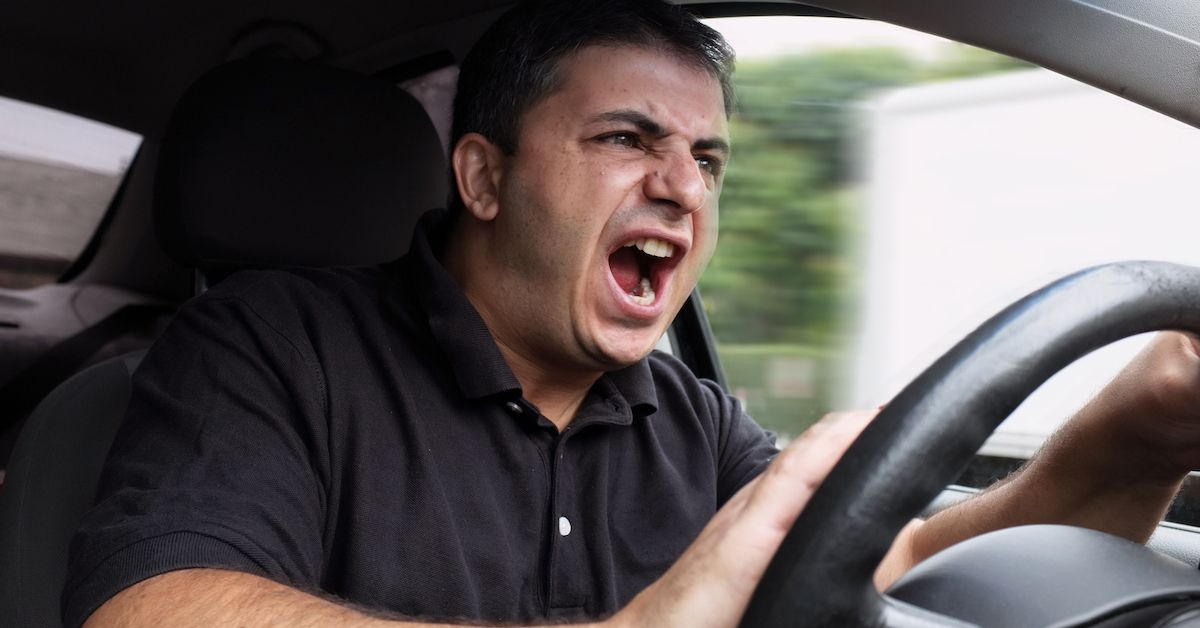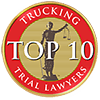
Do you ever wonder while you’re driving how there aren’t more accidents? After all, we’re driving extremely heavy vehicles at high speeds and some of us are still teenagers, some are texting, and some got only two hours of sleep last night.
Thankfully, most of us understand the dangers of driving and try to stay focused on the road and practice defensive driving.
Unfortunately, some people seem to never feel this way and instead choose to drive as if they were playing a video game, weaving in and out of traffic, tailgating, and showing blatant disregard for every rule of the road.
Aggressive driving can also include:
- Speeding
- Not using turn signals
- Running red lights and stop signs
- Cutting lanes
While it’s something that plenty of us silently (or not so silently) judge, it can also lead to some serious repercussions, including property damage, injury, and death.
For those affected by aggressive driving, whether it resulted in a serious injury or the death of a loved one, we’re here to help you receive the support and compensation you need to get your life back.
Get in touch with us for a free case review so you can tell us about your situation and we can help you better understand your rights and what you should do next.
Below, we want to take a closer look at aggressive driving, including how to spot an aggressive driver and how to avoid road rage.
How to Identify an Aggressive Driver
Like most things, aggressive driving is a spectrum. Imagine a speedometer where “Calm Driving” is on the far left and “Completely Unhinged” is on the far right.
Between these two extremes, there are many levels of aggressive driving – a little too fast, unpredictable, erratic, and so on.
While it’s very easy to spot the Completely Unhinged, it can be a bit trickier to notice the signs when a driver is becoming increasingly aggressive.
Oftentimes, this shows itself in how someone passes. If, in two-lane traffic, a driver is right behind the car in front of them, trying to pressure them into moving over, it’s a good sign that things could get dangerous.
After all, what happens if someone swerves in front of the car that’s being tailgated? What if an animal runs out into the road? The aggressive driver wouldn’t have time to slow down, and a quick chain of events could lead to a serious accident.
Another subtle thing to watch for is when drivers refuse to let you merge. It can certainly be frustrating, especially in heavy traffic, to let other cars in front of us. But we all understand that driving in traffic is about give and take – we need to get where we’re going, but we also need to get there in one piece. So, if someone refuses to let you in and makes a point of blocking your way, it could be a sign that they’re an aggressive driver.
If you see someone exhibiting this type of behavior on the road, do your best to get out of the way. Get in the slow lane and distance yourself, or pull off at the next exit to remove yourself from the situation and calm your nerves.
Should You Report an Aggressive Driver?
Of course, nothing is scarier than when another driver seems to single you out. Maybe they pass you and then slow down in front of you, drive up beside you and yell, or tailgate and honk.
In these situations, do what you need to stay safe. Pulling over in a public space – while keeping your doors locked – might resolve the issue. But don’t hesitate to call the police and ask them to send help if you feel like you’re in danger.
An important thing to remember is that you don’t know the cause of the aggressive driving. We might assume that someone is just having a bad day, annoyed with traffic, or running late for a meeting. But they could also be intoxicated or having a mental health crisis.
You never know, which is why – to be safe – you should avoid aggressive drivers as much as possible and get help if you need it.
How to Avoid Road Rage
Let’s be honest, all of us have our moments on the road.
We have places to go, people to see, food to eat. Sometimes we have bad days, and sometimes bad things – like breakups or the news of a loved one’s death – happen while on the road.
It’s important, when this happens, to be self-aware. We all need to have ways of calming down to recognize when we shouldn’t be driving.
A really good way to know you’re on the verge of driving aggressively is if you aren’t following the rules and etiquette of the road like usual. You might stop using your turn signals, start tailgating, or begin driving too fast.
When you realize this, it’s important to remind yourself of the heaviness of your vehicle and the speed at which you’re traveling – that there are kids and families and real people in the vehicles around you. We might get away with this behavior sometimes, but other times it causes serious accidents.
Much of the time, reminding yourself of these facts is a good way to slow yourself down. However, if you’re unable to, it’s a good time to find a place to park until you do. It happens to the best of us, but with a little self-awareness we can all stay safe.
Statistics Involving Aggressive Driving
If you tend to get a bit heated behind the wheel, consider remembering a few of these facts to keep you focused on the road:
- In 2015, road rage was a factor in 467 fatal accidents. In 2006, that number was just 80. That’s more than a 500% increase over less than 10 years.
- In 2016, there was an average of about one deadly accident involving road rage every day.
- According to the NHTSA, 9,378 people were killed because of speeding in 2018.
- In 2017, speeding was a factor in 26% of traffic fatalities.
The challenging part for many people is that we so often get away with dangerous driving habits. Many drivers think that it’s completely fine to drive 10 mph over the speed limit, meaning they probably drive even faster when in a hurry or angry.
Nevertheless, the facts don’t lie. Speeding, like all types of aggressive driving behavior, is deadly.
What to Do If You’ve Been Injured in a Car Accident
If you’ve been injured in a car accident, you should almost always get in touch with an attorney. If it’s serious and you know the damages and medical expenses are going to be high, you shouldn’t think twice.
A few other things that are important to do following an accident:
- Get the medical treatment you need: Some people, after an injury, hesitate to get medical treatment because they’re worried about being able to afford it. Nevertheless, if you are slow to get the help you need after an accident, it might be argued that your injuries weren’t as serious as you claim. If you’re worried about whether or not you’ll be able to receive compensation to cover your medical bills, or how you’ll cover them in the meantime, speak with a car accident lawyer.
- Document everything: When you enter into negotiations with an insurance company – or a case in court, for that matter – everything you say will need to be backed up with evidence. That includes documentation of injuries, the treatment for those injuries, the damages to your property, and any other expenses for which you are demanding compensation. Again, it’s important to speak with an attorney if you aren’t sure how to properly document expenses and diagnoses.
- Don’t accept the first offer: After you submit a claim with the other driver’s insurance company, they’re going to open a case and begin their investigation. The goal of every case they open is the same: pay as little as possible. Hence, when they get in touch with you, they might offer you an amount or to pay some of your bills for you. It’s important not to take the bait. Hopefully, they will come to offer you the right settlement amount, but it’s not likely to be their first offer.
Knowing the right way to handle yourself after an accident and injury is hard. There might be a lot of money at stake, and many of the people you talk to about it won’t have your best interests in mind.
That’s why we’re here. We are proven accident attorneys who win maximum compensation for our clients. We never charge for our services unless we win a case, we have a 99% success rate, and we know how to fight insurance companies to make sure you get the compensation you need and deserve to get your life back.
If you’ve been injured in a car accident in West Virginia and would like to talk with us about your case, don’t hesitate to reach out at (304) 599-4229 to set up a free case review.










